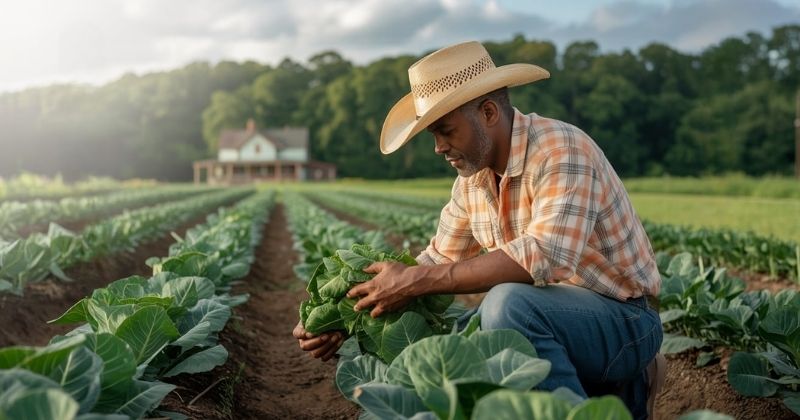
Access to funding is a key factor in the success and sustainability of agricultural businesses in South Africa, particularly for startups and small-scale producers. With the agricultural sector playing a central role in employment, food security, and economic growth, especially in rural areas, grant opportunities provide much-needed support for expansion, equipment upgrades, and operational stability.
Key Takeaways
- Funding Drives Agricultural Growth: Access to funding enables farmers and agribusinesses to improve productivity, expand operations, and withstand economic challenges.
- Various Grants Are Available Across South Africa: Both national and provincial programmes offer targeted support for different types of agricultural projects, with clearly defined eligibility and funding limits.
- Preparation Is Key to Securing Grants: A strong application depends on having a clear business plan, understanding funding requirements, and ensuring alignment with the objectives of the grant provider.
About Arcadia Finance
Get a personal loan the easy way with Arcadia Finance. Compare offers from 19 trusted lenders with no application fees or hidden costs. All partners follow South Africa’s NCR rules, ensuring a fast, safe process that suits your financial situation.
Why Framing Projects Require Funding in South Africa
Access to funding allows startups to secure vital resources such as skilled personnel, equipment, and technology, which in turn supports improved productivity and encourages innovation within agricultural projects.
Funding also plays a crucial role in enabling businesses to expand, enter new markets, and maintain stability during uncertain economic periods.
According to a field report by the International Fund for Agricultural Development (IFAD), economic growth within agriculture in Sub-Saharan Africa has been shown to be 11 times more effective in alleviating extreme poverty compared to growth in other industries.
Pursuing funding opportunities helps startups address operational challenges more effectively, respond to market demands, and contribute meaningfully to the development of South Africa’s agricultural economy.

Framing Project Grants In South Africa
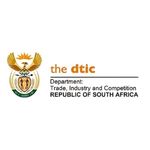
Agro-Processing Support Scheme
The Agro-Processing Support Scheme is a funding initiative designed to assist businesses in the agro-processing and agribusiness sectors. It enables recipients to increase production capacity, create job opportunities, upgrade machinery and equipment, and boost overall efficiency and competitiveness.
This funding is structured as a cost-sharing grant, where applicants contribute between 20% and 30%, with the total grant not exceeding R20 million over a two-year period. The scheme is administered by the Department of Trade, Industry and Competition (DTIC).
To apply, businesses must complete an application form and submit a detailed business plan that includes the nature of their agro-processing operations, financial projections such as budget plans, and an income statement and balance sheet forecast for a minimum of three years.
Purchases of assets made before submitting the application are not eligible under this grant.
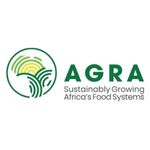
AGRA (Alliance For A Green Revolution In Africa)
AGRA is a non-profit organisation comprising stakeholders from across the African continent. Its primary focus is to issue grants to eligible recipients such as governments, ministries, seed companies, non-profit organisations, agro-dealers, and other agricultural businesses that align with AGRA’s developmental goals.
Applications must be submitted online or via email. Further details on eligibility and requirements can be accessed through the official AGRA website.
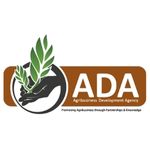
Agribusiness Development Agency (ADA)
The Agribusiness Development Agency (ADA) operates under the KwaZulu-Natal Department of Agriculture and Rural Development (DARD). The agency seeks to build a sustainable and competitive agro-processing sector in KwaZulu-Natal through various support measures.
Funding from ADA is available for amounts exceeding R600 000, with a cap of R4 million per applicant.
Applicants must be registered legal entities in South Africa and must provide a valid Tax Clearance Certificate to demonstrate compliance with SARS. The business must either be a new operation or aimed at improving an existing one.

Limpopo Economic Development Agency (LEDA)
LEDA was formed through the merger of four separate agencies, namely Trade and Investment Limpopo, Limpopo Business Support Agency, and Limpopo Agribusiness Development Corporation, among others. Its role is to support business expansion, investment facilitation, and business acquisitions within the province.
To qualify, applicants must:
- Be a registered South African legal entity under the Companies Act;
- Be in good tax standing, supported by a valid Tax Clearance Certificate.
Funding amounts vary from R50 000 up to R10 million per investment.

Northern Cape Economic Development Agency (NCEDA)
The Northern Cape Economic Development Agency was established to address the high cost of doing business in the region. The objective is to improve economic activity and support inclusive growth through increased business development in agriculture and agro-processing.
Support is intended for individuals and businesses operating in the agricultural and agro-processing sectors.
Comprehensive Agricultural Support Programme (CASP)
The CASP grant targets land reform beneficiaries and producers who have acquired land through private transactions. This funding is aimed at enhancing participation in value-added agriculture, whether for domestic supply or export.
Applicants must be South African citizens who are Black, Indian, Coloured, or Chinese, aged 18 years or older.
Applications can be submitted through the Department of Agriculture, Land Reform and Rural Development’s website, which manages this grant programme.

AgriBEE Fund
The AgriBEE Fund supports transformation in the agricultural sector by providing financial assistance to black-owned agricultural enterprises. This includes farms, agro-processing operations, and related agricultural activities.
The fund is overseen by the Department of Agriculture, Forestry and Fisheries. Funding ranges between R1 million (with a 10% contribution from the applicant) and R5 million (with a 20% contribution).
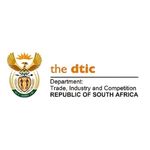
Export Marketing And Investment Assistance Scheme (EMIA)
The Export Marketing and Investment Assistance (EMIA) Scheme helps both new and existing exporters to expand into foreign markets. This initiative, managed by the Department of Trade, Industry and Competition, focuses on improving business competitiveness and access to international opportunities.
Support includes:
- Exhibition space rental (up to R50 000),
- Return economy airfare,
- Interpretation services,
- Marketing materials,
- Patent registration costs (up to R100 000) in overseas markets.

Aquaculture Development And Enhancement Programme (ADEP)
The ADEP is tailored to support businesses engaged in aquaculture and aquaponics across marine and freshwater environments. It is structured as a 50% cost-sharing grant, with a maximum amount of R20 million.
Eligible applicants must operate within Standard Industrial Classification (SIC) 132, which includes primary, secondary, and related activities in aquaculture. The grant can be used to launch new operations or expand existing ones, provided the business is registered in South Africa.

How To Secure Funding For Agricultural Startups
Agricultural startups often require financial support in order to grow and succeed. The following guidance outlines key steps that can help you secure funding for your business.
| Step | Description |
|---|---|
| Conduct Comprehensive Research | Before approaching any funders, agricultural startups should conduct detailed research to gain a clear understanding of their intended market. This includes analysing trends in the sector, identifying potential competitors, and assessing the preferences of likely investors. The goal is to determine the most appropriate type of funding and the strategy that aligns with your business objectives. |
| Develop A Clear Business Plan | A business plan serves as a formal outline of your startup’s financial targets, mission, and vision. It also details the business model, customer base, unique selling points, and potential for future expansion. This document plays a vital role in attracting investment by demonstrating that your venture is viable and strategically sound. |
| Understand Your Funding Options | Familiarise yourself with the various funding sources that may be available to your business, especially those that operate within your region or industry. Each option will come with specific eligibility requirements, funding limits, and repayment obligations. To select the most suitable option, you must first assess your financial needs and define your long-term plans. |
| Build Relationships And Expand Your Network | Expanding your professional network can significantly increase your chances of securing funding. Take part in pitch events, attend business networking sessions, join local or national industry associations, and participate in online forums related to agriculture and entrepreneurship. Strong connections and clear communication with key stakeholders can open the door to financial backing and valuable industry insights. |
| Include An Exit Strategy | Investors often expect startups to have a clear exit strategy, which explains how they intend to generate returns. Your strategy might include approaches such as share buybacks, initial public offerings, mergers, or acquisitions. It is essential to define these options and communicate them to prospective investors with clarity and confidence. |
| Prepare A Strong Pitch | A pitch is your opportunity to present your business idea in a structured and engaging way. A good pitch deck or presentation should include an overview of your business story, your core offering, the market potential, your position relative to competitors, financial forecasts, and the specific funding you are seeking. The pitch must be concise, logical, and aligned with investor expectations. |
| Present Your Pitch To Investors | Once you have refined your pitch, begin engaging directly with potential investors. Speak clearly and with confidence, ensuring that your enthusiasm and industry knowledge are evident. Being well-prepared and transparent can leave a positive impression and enhance your credibility. |

How To Identify the Right Grant for Your Agricultural Project
Finding the most suitable grant for your agricultural venture requires a focused and structured approach. By identifying your funding needs, understanding the types of grants available, checking eligibility requirements, and assessing funding structures, you can improve your chances of applying for the right financial support to grow your business.
Pinpoint Your Project Needs
Start by identifying exactly what you need funding for. Whether you are acquiring equipment, developing infrastructure, expanding production capacity, or entering new markets, clearly defining these needs will help narrow your options to grants that align directly with your goals.
Match Grants to Your Project Type
Once your needs are clear, match them to the appropriate funding category. National grants such as CASP or AgriBEE are generally broader in scope and available countrywide, while provincial grants like ADA (KwaZulu-Natal) or LEDA (Limpopo) are often focused on regional development objectives. Selecting the right level ensures better alignment with the funder’s priorities.
Check Eligibility Requirements Carefully
Most grants have specific conditions you must meet before applying. These typically include South African citizenship or legal business registration, tax clearance from SARS, and in some cases, a minimum level of black ownership. Reviewing the criteria in advance can prevent wasting time on applications you’re not qualified for.
Consider Funding Structure and Scale
Different grants offer varying amounts and may require a contribution from the applicant. For example, cost-sharing schemes like ADEP and APSS expect you to cover a percentage of project costs. It’s crucial to ensure that both the funding amount and contribution expectations are suitable for your financial situation and project scope.
Application-Ready Checklist
Before you apply, make sure your business plan is complete, your documents are up to date, and your project matches the goals of the grant programme. Being prepared with your financial forecasts, registration documents, and proof of compliance gives your application a much stronger foundation.
Conclusion
Securing funding for agricultural projects in South Africa is achievable with the right preparation and understanding of available grant opportunities. From national schemes like CASP and AgriBEE to regional support offered by agencies such as ADA and LEDA, farmers and agribusiness owners have access to a broad range of financial assistance. Each grant comes with its own requirements and conditions, so identifying the best fit for your project and ensuring compliance is essential. A detailed business plan, up-to-date documentation, and a clear funding strategy can significantly improve your chances of approval and help you contribute meaningfully to the growth of South Africa’s agricultural sector.
Frequently Asked Questions
There are both national and provincial grants, including those focused on agro-processing, aquaculture, export development, and black-owned agricultural enterprises. Examples include CASP, AgriBEE, ADA, ADEP, and EMIA.
No, grants do not require repayment, but many come with conditions such as co-funding contributions or compliance with specific operational goals.
Yes, many grants are open to new businesses, especially those with a strong business plan and clear objectives. Some programmes prioritise startups to promote transformation and job creation in the sector.
Common documents include a business plan, tax clearance certificate, financial forecasts, proof of business registration, and evidence of market readiness or production capacity.
The processing time varies by programme, but it typically takes several weeks to a few months depending on the complexity of the application and the funder’s internal review process.
Fast, uncomplicated, and trustworthy loan comparisons
At Arcadia Finance, you can compare loan offers from multiple lenders with no obligation and free of charge. Get a clear overview of your options and choose the best deal for you.
Fill out our form today to easily compare interest rates from 19 banks and find the right loan for you.

